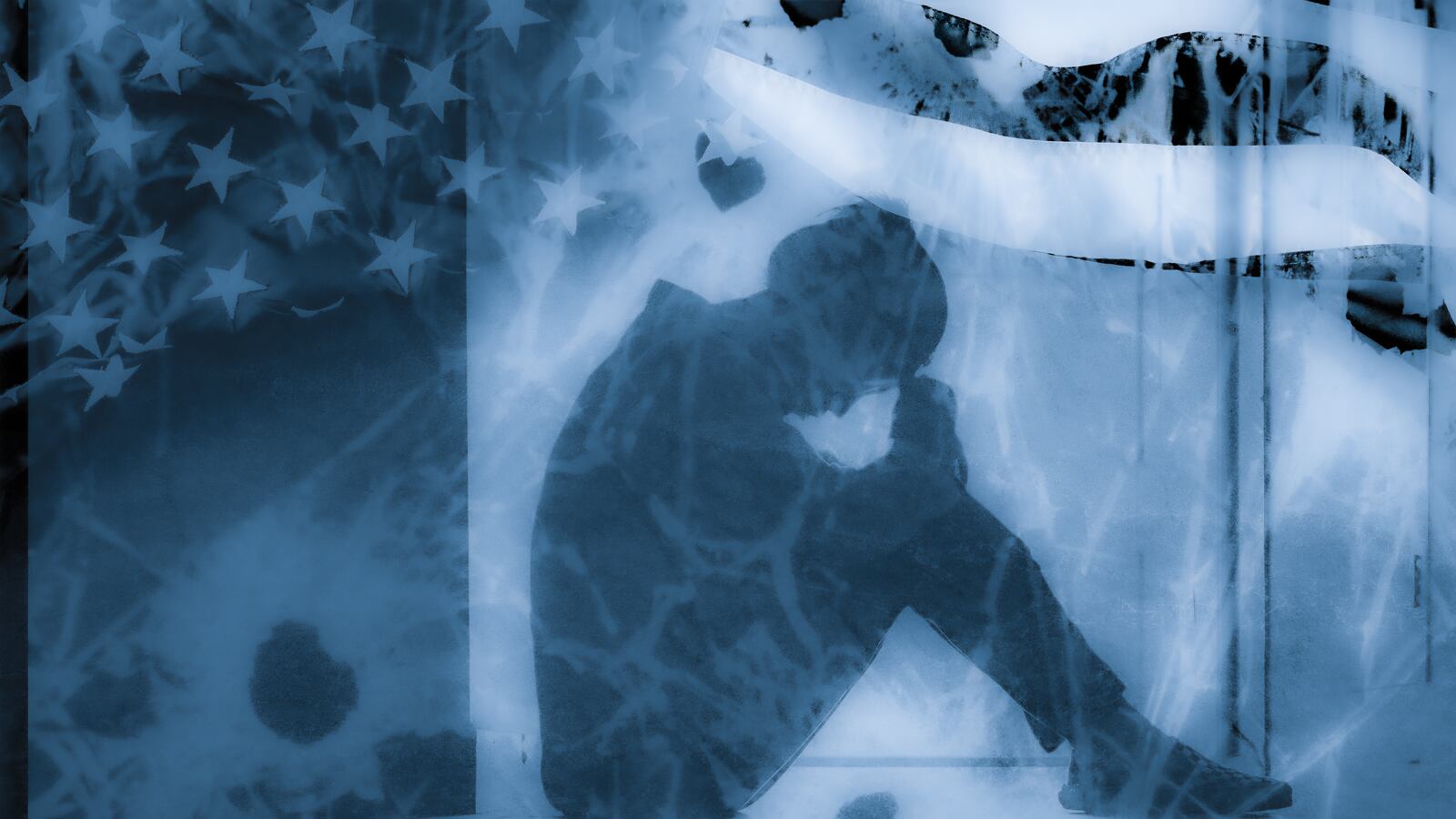Today’s high school students were born after the mass shooting at Columbine and were in elementary school when a gunman murdered 20 first graders and six adults at Sandy Hook. These teens are old enough to remember the massacre in Parkland, but most of them were too young to join the protests that followed.
They grew up with routine active shooter drills at school and with the perfunctory “thoughts and prayers” politicians offered when tragedy struck.
Following last month’s school shooting that killed 19 children and two teachers at Robb Elementary School in Uvalde, Texas, the supermarket shooting in Buffalo, New York, 10 days earlier, and a year that saw rising homicides in many major American cities, Chalkbeat invited teens around the country to tell us how gun violence affects their lives and education.
In their lifetime, there have been thousands of mass shootings, including those in Philadelphia and Chattanooga, Tennessee this past weekend. There have been hundreds of school shootings, too, but no new and significant federal gun control laws. (Bipartisan talks on firearm restrictions are again underway.) Because of pervasive gun violence, students say they have learned to scan every classroom for places to hide from an active shooter, plan out escape routes, and contemplate whether and how they might help stop a shooter in their school.
Some teens say they have become desensitized to news of mass shootings because there’s no time to process one massacre before another occurs. Other students say the American gun violence epidemic keeps them in a constant state of high alert and that they are traumatized and exhausted.
They fear more than mass shootings and shots fired inside school buildings. Everyday gun violence has them considering how they get to school, where they sit in public spaces, and whether or not they’ll see their families at the end of the day. One student talked to Chalkbeat about Kyhara Tay, the 11-year-old girl struck by a stray bullet last month in the Bronx. Another remembered her schoolmate Jimari Williams, an 18-year-old Chicagoan killed by gunfire just two months before he would have graduated from high school.
The students who opened up to Chalkbeat shared a range of emotions, from numbness to fear, from anger to despair. Although they want more from their leaders, they don’t believe elected officials will take meaningful action to curb gun violence any time soon.
Their stories have been lightly edited for length and clarity.
Pragnya Kaginele: Walking into a classroom, I think about hiding places
Jeremiah Griffith: It can’t get much worse
Amaya Turner: Kids are not pieces on a chessboard
Radiah Jamil: Schools should focus on student mental health and teach self-care
Meleena Salgado: Since third grade, I’ve worried about being shot at school
Anjali Darji: I’m in that crisis state of mind
Bryan Bastidas: America is normalizing gun violence on every scale
Ajibola Junaid: Elected officials must stop fighting the wrong battles
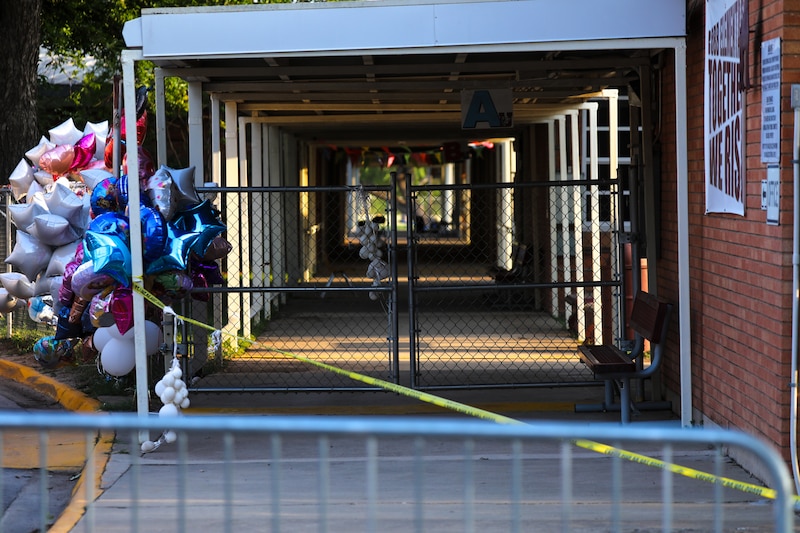
Walking into a classroom, I think about hiding places
Pragnya Kaginele, 15
Freshman, Carroll High School in Southlake, Texas
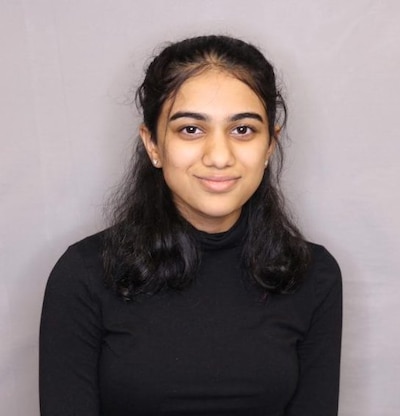
It almost feels hopeless sometimes. I can’t think of a good solution other than good gun control. But it’s not like I can say “There should be gun control,” and magically there’s gun control. The people who are supposed to be protecting us are just not going to protect us, and they have so much more power than all of us. I’d like to think it would happen when our generation becomes eligible to run [for office], but we can’t wait 15 years.
It’s so strange that people just have guns and can carry them into schools and cause this kind of destruction. What happened in Buffalo wasn’t a school shooting, but it was a hate crime, and it was about a week before. In the span of 10 days, there’s been a racially motivated shooting, and then there’s been a shooting where 19 little kids died. For those to happen back to back, it’s like you don’t finish processing the fact that one happened before the next tragedy. It just keeps coming at you, and I guess your brain starts to think, this is just normal.
Just because it’s been happening so much doesn’t make this loss of life normal. Just because the Founding Fathers wrote in the Constitution 200 years ago that Americans have the right we have the right to have guns — just because people are so obsessed with not making any change to [the status quo] — students are forced to live their lives in fear. (The Second Amendment states, “A well regulated Militia, being necessary to the security of a free State, the right of the people to keep and bear Arms, shall not be infringed.”)
When I first go into a classroom, I think about hiding places. If I’m in a hallway, I think, if something happened, what bathroom would I go into? And there are these weird moral questions, like, would I throw myself in front of someone, or would I jump behind them? It feels weird to think about that because I’m 15 years old.
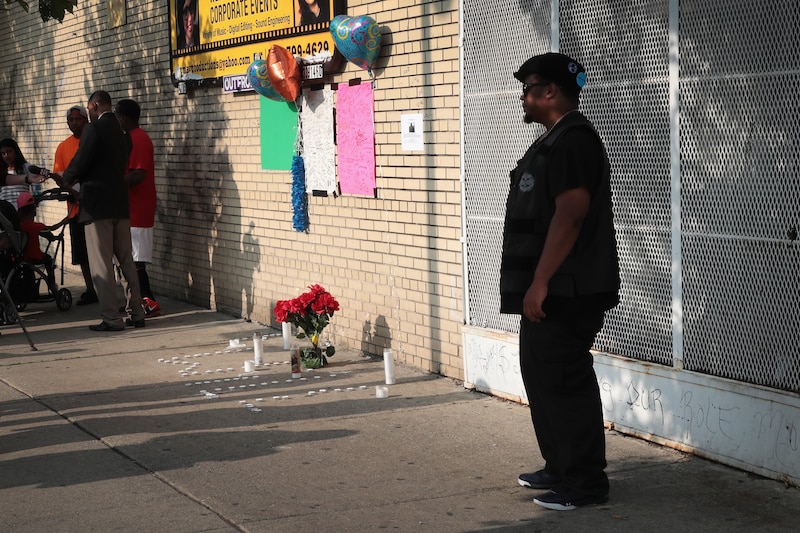
It can’t get much worse
Jeremiah Griffith, 16
Junior, Noble Academy in Chicago
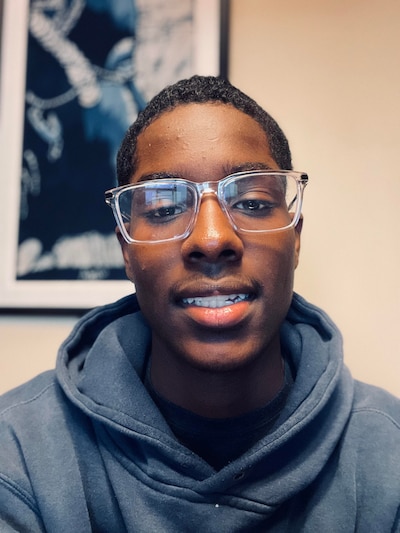
I am a student journalist and was covering the Chicago Sky ring ceremony on May 24. The WNBA commissioner was talking about the mass shootings in the past month. She mentioned Buffalo and Texas, and I was confused because I hadn’t heard what had happened in Texas. There was a moment of silence, and the whole arena was silent.
I found out more about it during the post-game interview. When I went home, as I was finishing up the recap of the game and the article, I looked up what happened. It’s sad because, on the one hand, it’s like, oh, another mass shooting — same old, same old. But on the other hand, we have to change something.
The next day, in my AP language class, we talked about the mass shooting in Uvalde. My teacher let us have a Harkness, which is a kind of group discussion. We were talking about how we could possibly change the Second Amendment of the Constitution, but we know that might not happen. We’re being held back by the government and the lobbyists who control the NRA.
Here in Chicago, there are shootings every day. I remember when it first started getting warmer a few weeks ago, there were at least 28 people shot over the weekend, and all it got was local news reporting, and that was about it.
The Buffalo shooter literally used a live stream app, Twitch. All my friends use that app, and a lot of people saw the video (before the stream was removed). We’ve become desensitized to mass shootings, but there’s not much we can do unless there is a drastic change to the entire system. Otherwise, these things are going to keep happening. It can’t get much worse. We’re already witnessing murders on camera, and it’s normal.
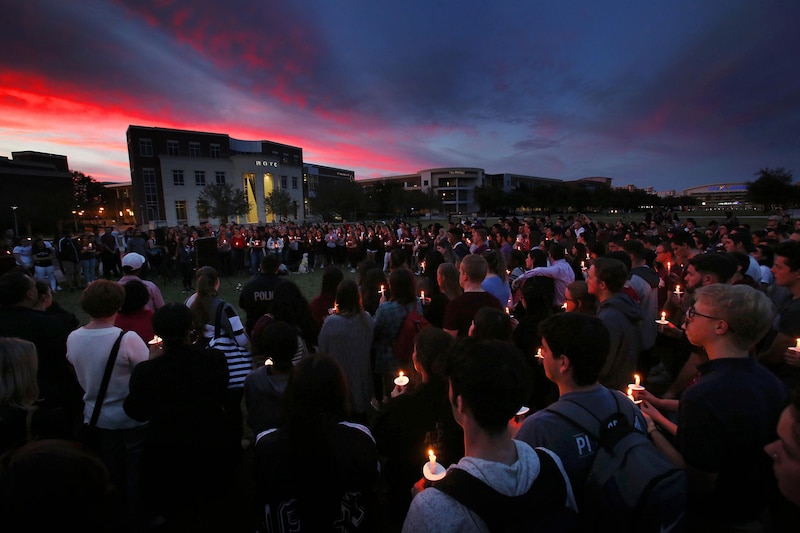
Kids are not pieces on a chessboard
Amaya Turner, 17
Junior, Abington High School in Abington, Massachusetts
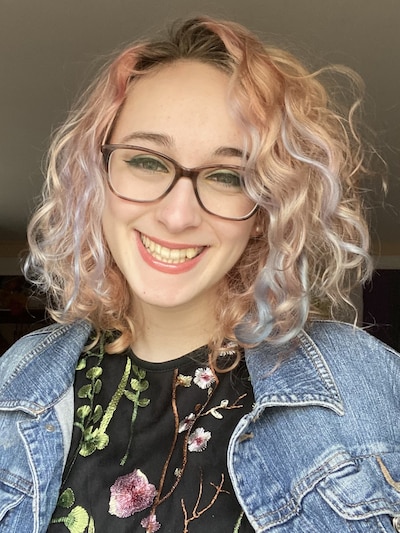
School shootings affect me more than I think they should. No matter how often they happen — and happen often, they do — I can never quite manage to feel desensitized. I suppose that’s good. I do not want to become desensitized, but the familiar fear and grief they stir up are beyond exhausting.
Every time a new school shooting occurs, I cannot stop picturing the hundreds of people who were close to the victims and will be forever changed. I cannot help but think about the surviving students who will live forever with the memories. Have we really come to a place in our country where lifelong trauma after a shooting qualifies someone as “one of the lucky ones” because at least they survived?
In 2018, when the Marjory Stoneman Douglas school shooting happened in Parkland, Florida, I remember being terrified to go to school for weeks. In every classroom I sat in, I would try to figure out where I would run or hide if there was a shooter. I was 13. I already knew about Sandy Hook and had internalized the idea that school shootings were a part of life I might as well accept.
But it is difficult to feel safe when watching your teacher cover the narrow floor-to-ceiling window pane with a cabinet because she is afraid a would-be shooter could break the glass. It’s difficult to feel safe when you’ve grown up practicing how to huddle together with the lights off, staying as quiet as possible, and then going through ALICE training (Alert, Lockdown, Inform, Counter, Evacuate). Many adults did not grow up with active shooter drills because they were mostly implemented after the Columbine shooting in 1999. So the majority of our government officials don’t know what it is like to hear kids joke nervously about who would jump in front of a shooter to buy time.
After each tragedy, there are desperate pleas for change but no real change, and then we end up repeating the tragic cycle. It is absolutely soul-crushing.
Student safety is a human right, and children, teens, and their teachers should be able to go to school without fearing the worst. I worry less for my own safety and school — Massachusetts, where I live, has some of the country’s most restrictive gun laws — and more for all the school communities bound to be impacted by mass shootings unless something changes. I worry about the parents planning funerals for their children. I worry about the surviving students who face a lifetime of traumatic memories. I worry about mental health professionals trying to help students who are suffering. I worry about innocent people who have the same mental conditions as past shooters and are now being unfairly stigmatized. Mostly, I worry about how many more children will die before change is finally enacted.
I feel so powerless hearing another shooting being politicized and debated. Kids are not pieces on a chessboard. For now, I can only hope that there will be a generation of children who never know the ever-present anxiety of school shootings or have to watch the death count slowly rise over a series of days. I can only hope my peers and I are granted the time and resources necessary to bring about the changes we deserve.
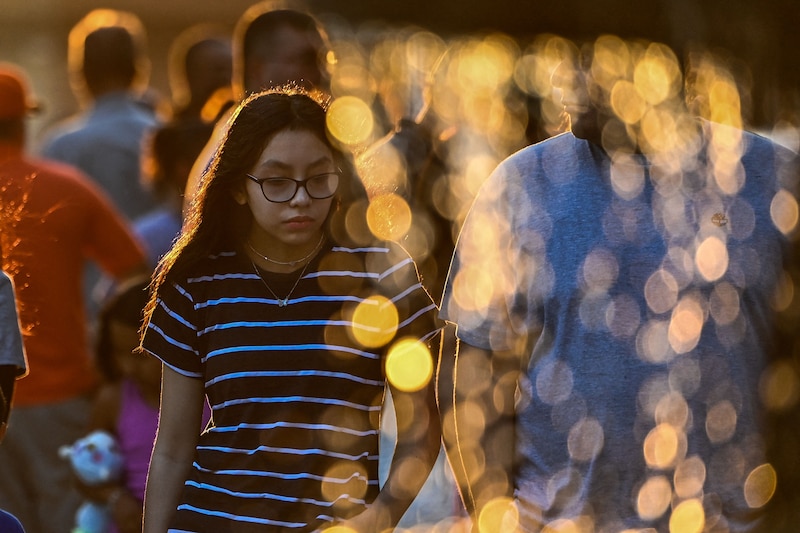
Schools should focus on student mental health and teach self-care
Radiah Jamil, 18
Senior, Brooklyn Latin School in New York City
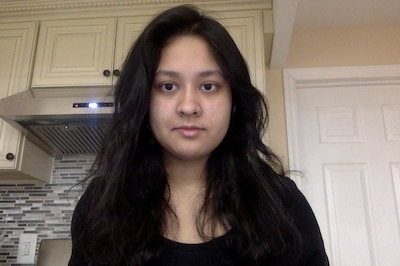
I found out about the school shooting in Uvalde on social media — Instagram specifically. That’s where I get most of my news. It was just an infographic that said the number of people who were dead in Texas.
After mass shootings, a common thing people say is: Make it stricter to get guns or even abolish them completely. But I’m a big-picture person. Mental health is the primary thing that schools can focus on fixing. Mental health affects your thoughts, your decisions, your actions, and your interactions with everyone. It really impacts every aspect of your life, so that’s why I think it’s the primary thing to tackle.
Mental health has long been a crisis that has not gotten enough recognition. There has been a lot of stigma. I think we’re getting a bit better at reducing the stigma with technology, but technology can also make people’s mental health worse. It makes you more prone to cyberbullying, and online, you can be exposed to a lot of negative stuff.
When we were isolated during remote learning, we turned to Instagram and Snapchat to feel more connected. But that might not have been great for our mental health because there was a lot of stuff going on. The country was in such a tough space, and it definitely trickled down to have a negative effect on the mental health of many students.
Like most people, I was in my room for a year and a half and not socializing much. It took a toll on many of my friendships. I was diagnosed with depression. Coming back to school, it’s been so hard transitioning for both teachers and students. I feel like everyone is getting burnt out a lot more. There are many schools that don’t have access to a social worker on a daily basis, and a social worker is someone students can turn to when they’re having a hard time.
Last year, after winning money in a “Shark Tank”-style contest, I founded Mentalligence, a peer-to-peer mental health support organization to teach New York City high school students about different therapies, such as cognitive-behavioral therapy and existential therapy, and self-care techniques. Our peer support gives students a comfortable place to talk about their mental health, especially if they can’t afford a therapist or don’t have a reliable person at home to talk to.
If schools focused on mental health and self-care, it would really go a long way because, at school, we don’t talk about any of that stuff. Even little things like carving out 15 minutes to meditate and do gratitude journaling — teaching these self-care activities so that students can form these habits — could have a greater impact on students’ mental health in the long term.
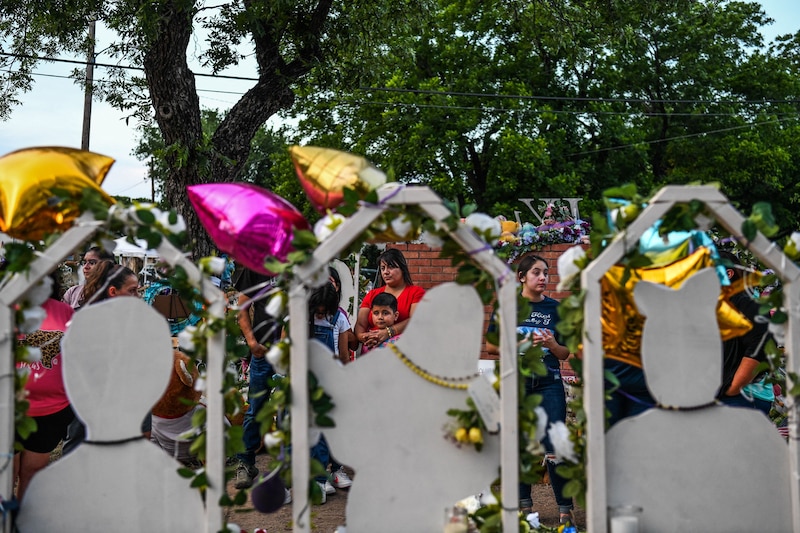
Since third grade, I’ve worried about being shot up at school
Meleena Salgado, 17
Junior, John Hancock College Preparatory High School in Chicago
I was feeding my dogs, and my dad rushed in and said a school had been shot up. My heart just sank. I was frustrated that there was another one. I hate to use that term because there were people who were lost. But I was just like, come on. No matter how many are hurt, [politicians] are just going to say, “Oh wow, what a tragedy,” and then we’ll find out about the next one.
I’ve been worried about a school shooting since I was little. The oldest fear I have about being shot up at school is when I was, maybe, in third grade. I was in the bathroom alone and heard this really loud bang, and I thought, “Oh, God, maybe this is it.” (That bang turned out to be someone dropping a textbook in the hallway.)
A few weeks ago, my friends and I were discussing where we’d hide if there was a shooting. My friend was saying that there are a lot of windows in this building, and I said that’s unfortunate because what if someone gunned down the windows? Then we said we could try the library, but there are windows there, too. They said, “Well, we could try the theater,” but we realized that is right where the doors are to get into school, so maybe that would be the first place that would be attacked.
Later, when I talked about hiding places with my brother, my mom was looking at us in horror.
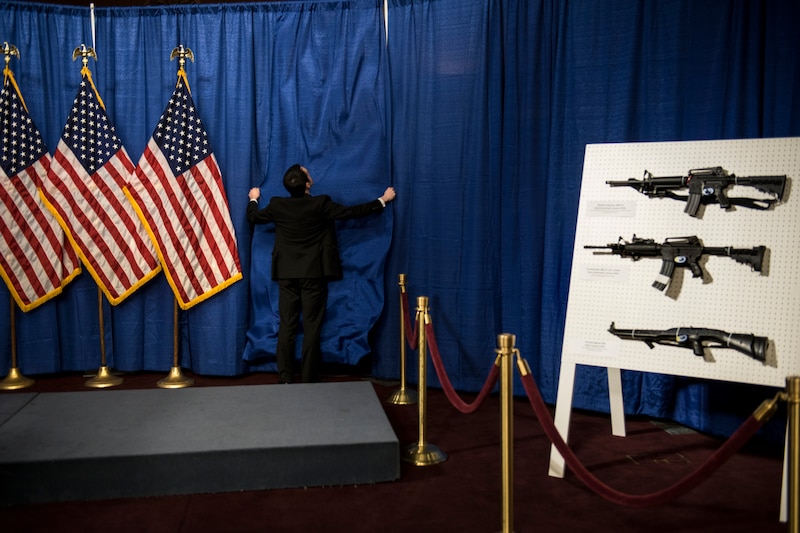
I’m in that crisis state of mind
Anjali Darji, 17
Junior, Rancocas Valley Regional High School in Mount Holly, New Jersey
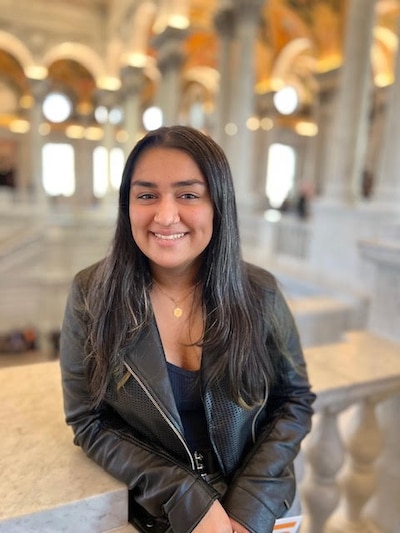
When I walked into class on Wednesday, my history teacher had the last four mass shootings and the death tolls on the board.
We’re currently learning about the George W. Bush administration, and my teacher went off about the 1994 assault weapons ban that President Bill Clinton signed into law and how the weapons used in the recent mass shootings would have been banned under that law. He told us how the ban ended during the George W. Bush administration and was never renewed.
Then, we had a conversation about how we go forward as America. Do we continue to be proud of America despite this? Or what do we do to change? Or do we just condemn America? He was asking that and no one answered because, honestly, I don’t know how I feel about this. I’m in that crisis state of mind.
On social media, people have been posting the number of U.S. shootings compared to other countries and how high America’s toll has been. And what I proposed in class is that we analyze other countries’ policies on gun control and related policies because they must be doing something right if they have significantly fewer shootings.
When someone brought up what happened in Uvalde, we either had to stop talking about it because someone was gonna cry, or there was just this resigned feeling.
I have plans for what to do in case of a shooting. In one plan, I’m running to save myself. I have another plan in which I’m trying to evade the gunman and help people get out of the building because my school has over 2,000 kids, and it employs hundreds of people. I’m numb to the idea that I do this kind of planning now. It’s just a thing that I do for self-preservation.
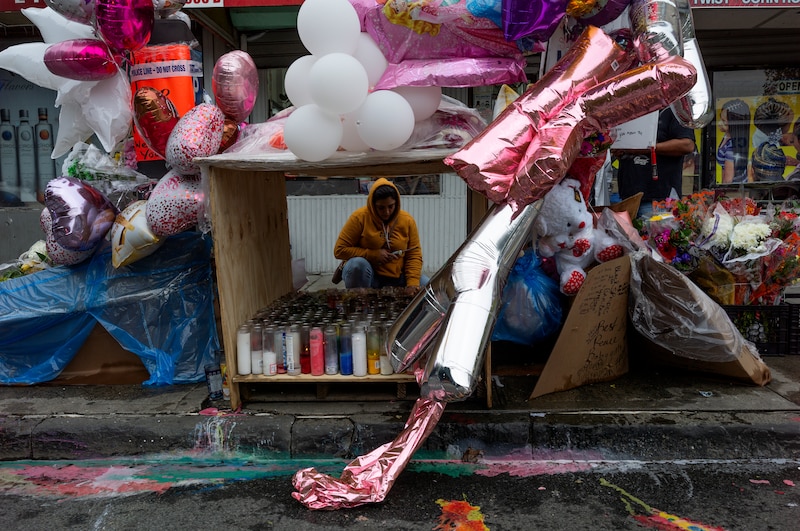
America is normalizing gun violence on every scale
Bryan Bastidas, 17
Senior, International High School for Health Sciences in New York City
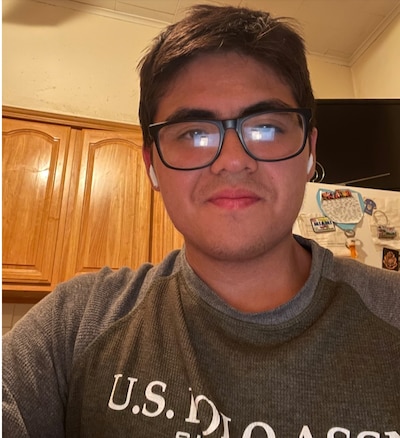
In the middle of a beautiful Tuesday in New York City, after watching “Better Call Saul,” I found myself scrolling through Twitter, bombarded with the news of another mass shooting in Texas. This time it happened in an elementary school.
I was shocked and confused about how a person could do this to small kids. I watched my little brother smiling as he played and watched videos; I was thinking about how someone could take those beautiful smiles from their mouths. I felt disgusted.
The worst part of it is that we are normalizing gun violence on every scale. Not only in Texas but also in New York, where I live. Two weeks before this, a little girl named Kyhara Tay was killed by a stray bullet in the Bronx.
Walking on the streets of New York City does not feel safe, especially for me, a student who always takes trains and buses and uses public spaces to socialize or take a break. Every day, I fear not seeing my father or mother coming back alive from work or my siblings from school. I fear dying on the bus or the train. It’s absurd that an 18-year-old can get a weapon and carry it into public spaces like it’s a cellphone or a toy.
Many people think that banning guns will fix the problem — and yes, it would reduce violence significantly — but we do not think as much about the person who used the weapon. He was only 18. What kind of life did he have? What kind of problems? Sometimes, we see symptoms and signs, but we do not do anything until everything explodes.
I think there should be more and stricter regulations on who and when to carry a gun. Firearms are not toys and should be difficult to get. One great example is Switzerland, which, like the U.S., has a high rate of gun ownership. But, unlike the U.S., which has had more than 200 mass shootings just this year, there have been no mass shootings in Switzerland in 21 years. That country issues licenses for firearms and carefully vets would-be gun owners before issuing these licenses (sometimes talking to mental health professionals in the process).
I think schools should also have more security to prevent these kinds of actions. We can use metal detectors and give police more tools to prevent these events. It is complicated to talk about this problem, but it is worth letting people know that this problem should be fixed. I want my family and friends to have a future where they do not have to fear for their lives in any situation, from walking in the city to being in school.
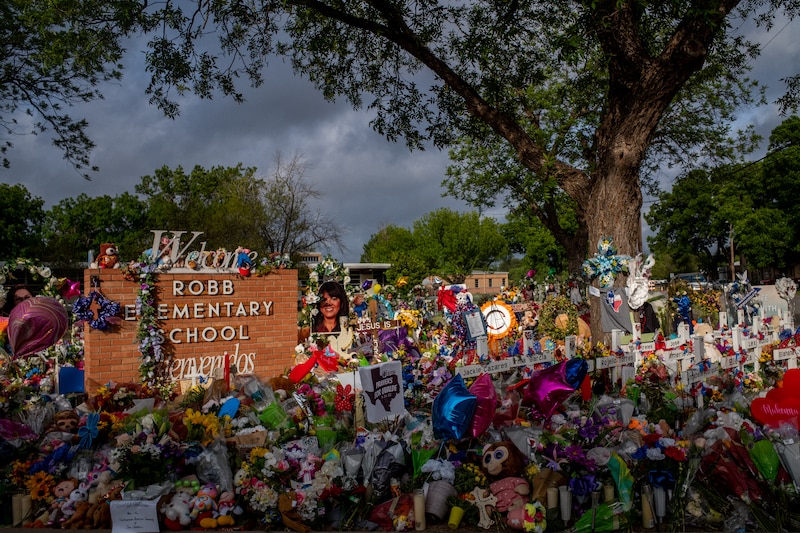
Elected officials must stop fighting the wrong battles
Ajibola Junaid, 18
Senior, Wendell Phillips Academy High School in Chicago
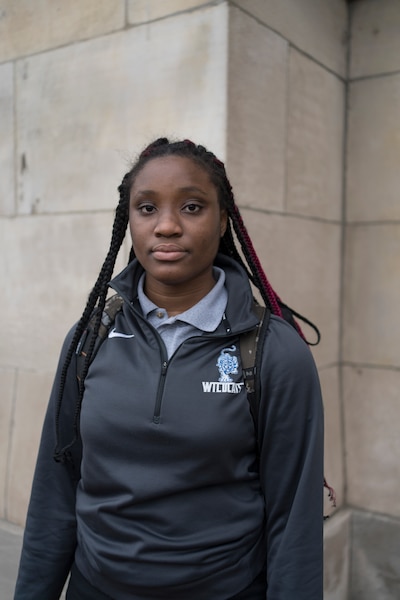
Gun violence means I don’t know how to ride a bike or have friends in my neighborhood because I don’t feel safe going out. The summertime is the worst because there are gunshots all the time. It’s hot inside, and it’s too risky outside.
Several students at my school have died of gun violence, including, last year, a senior named Jimari Williams, just two months before graduation. This year, a shooting outside my school injured a student and a security guard. It’s sickening. Nowhere feels safe.
We need gun control. We need politicians to stop fighting the wrong battles. Why are so many of them willing to do anything to make abortions illegal but not willing to take the necessary steps to protect the children who are here? Children like the 19 gunned down, along with two of their teachers, in Uvalde, Texas.
My heart bleeds for their families. I send my sincere condolences to all those who are grieving.
The saddest part of all this is that you’d think that massacre after massacre would bring about gun control. But nothing ever happens. The outrage will last only a few weeks, and everything will calm down until some other group of people dies. There have been at least 27 school shootings in the U.S. this year — and it’s only May. Hopefully, this time, government officials will listen to our cries for help. I hope the deaths of these innocent kids bring positive change to our society.
Stories from Anjali Darji, Jeremiah Griffith, Radiah Jamil, Pragnya Kaginele, and Meleena Salgado were told to Gabrielle Birkner.
If you are interested in speaking to Chalkbeat about how gun violence impacts your life and education, please reach out to us at community@chalkbeat.org.


